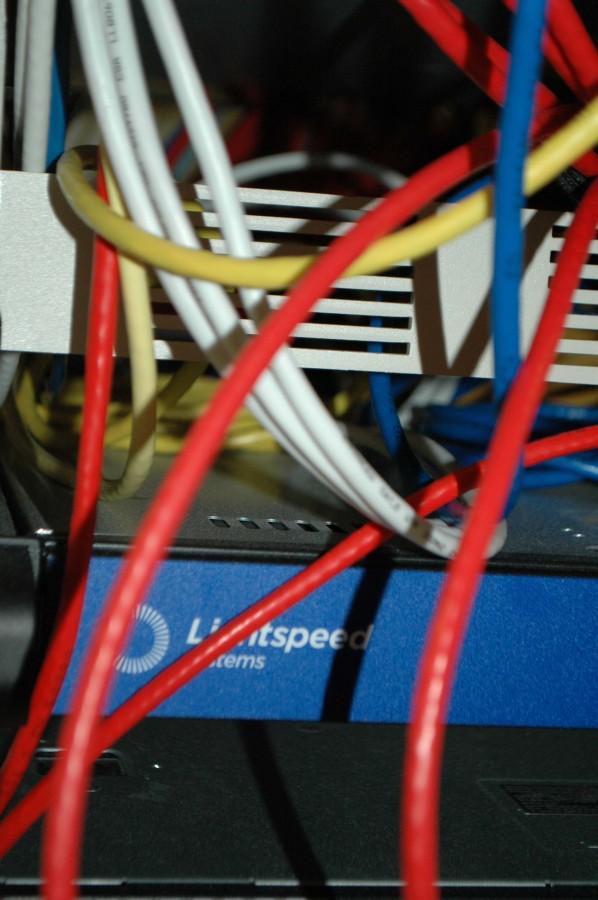Censoring Our Server
A filter is not necessary for our server at Horizon Honors. It can be said that in this day and age, this kind of censorship is irrelevant.
Photo Courtesy of Cooper Brown
This blue box is the device that filters through all of the webpages we attempt to open. The device is made by Lightspeed Systems.
May 23, 2015
While using a computer at Horizon Honors, you may attempt to open a website that seems harmless. However, we are often interrupted from our internet conquest by a page telling us that its content is categorized as adult or inappropriate. This may frustrate us as we were simply trying to get some research or attempting to select a picture for whatever reason. Lightspeed Systems is a company that creates a device that manages and approves the websites that are opened on our server. This device filters through the websites that are constantly being opened and rejects certain websites based on their content. There is an entire list compiled by the company containing all of the sites that can’t be opened.
This magic little censor box is tucked away in the room that contains our server in the media center. It is surrounded by an impressive-looking animal whose red fiber cable limbs stretch to opposite corners of the room, and its big aluminum body fills the room as it controls our computers. It’s the brain behind all of our technology at our school. And it just told me that I couldn’t open a picture of a kitten in a meadow with a ball of string. I’m sure whatever hardcore material must be on that site would be far too much for my sensitive 16-year-old brain.
All jokes aside, the type of censorship we receive may be slightly misguided if not ineffective. We live in the era of the smartphone, where a camera, the internet, and a phone are perpetually in our back pockets (because our front pockets are fake). If a student wants to access an inappropriate site, they have every ability to – on their own computer. But at least we’re not doing it on the school’s computers, now are we? The type of system we have set up now is mandatory by law for schools to install in their servers if they take federal funding. So it’s not the school telling us we can’t go on imgur or Instagram, it’s the government. However is this protection even necessary?
A study done by Harris Interactive on behalf of Pearson, the educational publisher, polled over 2,300 students between the ages of 8 and 18. Half of students use their smartphones either at home or in the classroom. This means that most students aren’t tethered to their school computers for internet access. On the contrary, students can access their unfiltered websites at anytime and anywhere. So if they want to access an inappropriate site, they have every ability to.
My belief is that if we are going to filter our internet because we truly think that our students shouldn’t be able to access it, then we need to be stricter with our policies regarding phone use. Is the filter there to help shield us from the ugly side of the internet or is it there to deter a lawsuit from an overzealous, conservative parent?









